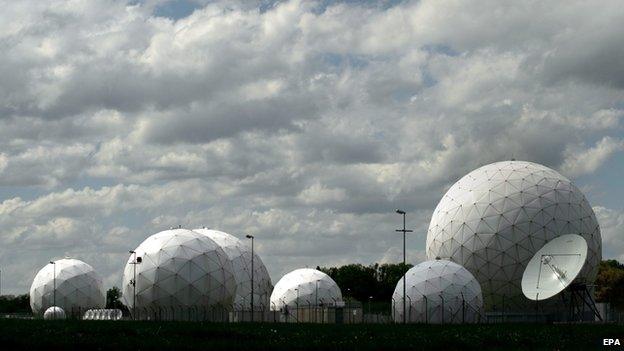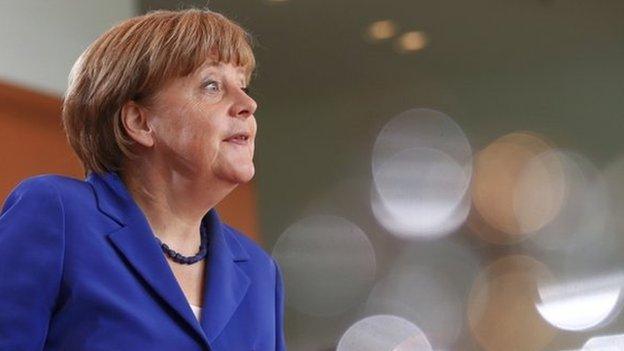Germany spying scandal: BND 'reduces NSA co-operation'
- Published

The BND runs this intercept station in Bavaria
Germany has "drastically reduced" internet surveillance for the US National Security Agency (NSA), reports from Germany say.
Claims that the German intelligence agency, the BND, had helped the NSA spy on European politicians, institutions and firms triggered outrage in Germany.
The BND adopted new rules requiring "clear justification" for each search.
As the NSA is not providing this, the BND has effectively stopped handing over internet surveillance data.

Chancellor Merkel's Chief of Staff Peter Altmaier testified at a closed panel hearing on Wednesday evening
German Chancellor Angela Merkel has come under pressure over the revelations, and has offered to give evidence to MPs.
'Drastic step'
A member of the parliamentary committee investigating the scandal, Green MP Konstantin von Notz, described the latest move as "a drastic step", but one that came much too late - as the problems had been known since 2013, he said.
Mr von Notz was present on Wednesday evening when the chancellor's Chief of Staff, Peter Altmaier, spoke to MPs in a closed hearing on the BND's work.
According to the Sueddeutsche Zeitung (in German), external, the monitoring station at Bad Aibling in Bavaria ceased providing internet surveillance data to the NSA earlier this week, after new rules - agreed with Mrs Merkel's office - were implemented.
The BND has worked with the US for years, but as this scandal has unfolded it has become clear that the targets went far beyond potential terrorist threats - and beyond the scope of the 2002 agreement between the two countries on which the co-operation is based.
The issue of surveillance is particularly significant in Germany because of its citizens' experiences of life under dictatorships - being watched by the Gestapo in the Nazi era, and then by the Stasi in Communist east Germany.
- Published6 May 2015

- Published4 May 2015

- Published5 May 2015

- Published30 April 2015
